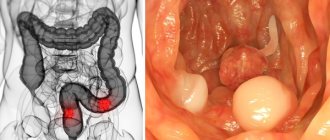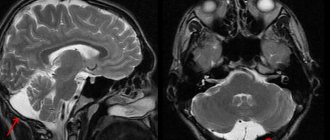Consultation with a gastroenterologist – 1,750 rubles.
Gastroenteritis , also called stomach flu , is a serious inflammation of the gastrointestinal tract that results in acute diarrhea. This inflammation of the stomach cavity is not a very dangerous disease, but it can bring a lot of inconvenience.
Gastroenteritis can lead to dehydration if the fluid balance in the body is not restored in time.
It is important to note that in third world countries, gastroenteritis, among other intestinal infections, is the main cause of high mortality among young children.
Treatment of acute infectious gastroenteritis in children and adults
Inflammation of the intestinal and stomach mucosa is called gastroenteritis.
The disease can be caused by bacteria, parasites and viruses. Symptoms of gastroenteritis in children are abdominal pain, loose stools, fever, headache, weakness, irritability, vomiting and flatulence. The pathology may be infectious or caused by incompatibility of products (alimentary gastroenteritis). The disease ranks second in pediatric practice after influenza and acute respiratory viral infections. Rotavirus gastroenteritis in adults is subclinical. Causes of the disease:
- failure to comply with personal hygiene rules;
- expired products;
- insufficient heat treatment;
- helminthic infestations;
- excessive consumption of alcoholic beverages.
Gastroenteritis of unspecified etiology can be caused by malnutrition, eating too spicy food, or long-term use of certain medications.
Most often, the disease occurs in people with reduced immunity, with chronic diseases of the gastrointestinal tract, and also against the background of hypothermia.
Description
Gastroenteritis is an infectious disease of the gastrointestinal tract. People call it “stomach flu”. It is the main cause of high mortality in third world countries. Most common among children of the younger age group. Statistics show that in our country every year more than 1 thousand patients go to hospitals with gastroenteritis. Often the consequences of such appeals are very sad. Thanks to clinical studies, it has been established that gastroenteritis is caused by viral, parasitic and bacterial endopathogens. Accompanied by loss of appetite, severe diarrhea, nausea, vomiting, stomach pain, and less commonly, fever. In developed countries, outbreaks of infectious diseases are rare. Patients who come to the clinic on time easily undergo treatment and recover. There are no consequences after gastroenteritis.
Types of gastroenteritis
The type of disease depends on the cause of the disease and the pathogen. The infection can be caused by viruses, bacteria or parasites. The following types of enterovirus are distinguished:
- infectious (causative agents are various types of viruses); rotavirus (most common in young children);
- coronavirus (transmitted by airborne droplets);
- parvovirus (the person in this case is a carrier of the disease).
Other non-infectious gastroenteritis:
- enteritis;
- colitis.
Acute and chronic gastroenteritis
The most common cause of acute gastroenteritis is the consumption of low-quality food. As a result, intoxication and the first signs of the disease appear: nausea, vomiting, fainting. Since the symptoms are similar to other stomach diseases, the diagnosis is not specified until the underlying cause is determined. The doctor prescribes treatment for general diseases.
Chronic gastroenteritis is a type of non-infectious disease. A complex disease requires special and long-term treatment, including lifestyle changes. A special diet is prescribed. The severity determines the duration of treatment.
Gastroenteritis in children
Children under three years of age are most susceptible to this disease. The infection occurs in a more severe and acute form than in adults. An important measure in the prevention of the disease is the timely identification of the carrier of the infection in kindergarten, preschool institutions and school.
Often gastroenteritis in children occurs due to a sudden change in diet or the introduction of new foods in the diet. In infants, an outbreak of the disease can occur due to improper nutrition of the nursing mother. Newborn babies on artificial feeding are especially at risk of disease, since they are deprived of breast milk, which contains the necessary elements that protect the intestines from infection. In case of acute gastroenteritis in breastfed children, it is necessary to continue feeding. Rotavirus gastroenteritis is also a common occurrence among children. This is due to insufficient personal hygiene. It is important that parents pay great attention to the hygiene of the child and regularly treat the baby’s toys, dishes and hygiene products.
Gastroenteritis in adults
After contracting the infection, the incubation period reaches up to 5 days, the first sign is loose stools. There are three degrees of severity of the disease:
- mild degree;
- average degree;
- severe degree.
Each degree is characterized by the frequency of occurrence of the symptom. Accordingly, the level of development of the inflammatory process is determined. In severe forms of the disease, the frequency of stools can reach up to 13-15 times a day. This leads to dehydration of the body. Like children, pregnant women are also at high risk of developing gastroenteritis. If you notice symptoms, you should immediately consult a doctor. Timely treatment at the hospital will help cope with the infection without serious consequences.
Atrophic gastroenteritis
Middle-aged people are susceptible to the disease. The cause of acute atrophic gastroenteritis is malnutrition, excessive consumption of alcoholic beverages, and a long course of taking medications. The process of mucus formation is disrupted and atrophy of the mucous membrane occurs. The functioning of the digestive system becomes abnormal, the patient loses weight and complains of feeling unwell, pain in the abdomen, and dizziness are noted. The first symptoms appear within a few hours after poisoning.
Possible complications
Gastroenteritis is a severe disease that entails undesirable consequences. An advanced acute form of an infectious disease leads to a chronic stage. The following fatal complications have been observed:
- intestinal dysbiosis;
- damage to vital organs;
- dehydration of the body;
- sepsis;
- asymptomatic carriage;
- toxic shock;
- disruption of immunological mechanisms;
- death.
A dangerous pathology is asymptomatic carriage of the infection. Without showing any symptoms of the disease, a person remains a carrier and carrier of the infection. This leads to infection of other people.
Which doctor should I contact for an intestinal infection?
If the first symptoms of the disease occur, you should contact your local physician. If the symptoms become more pronounced, you can call a doctor at home (general practitioner or pediatrician for the child). Treatment will take place on an outpatient basis. If the patient's condition worsens, you should immediately call an ambulance and take the patient to an infectious diseases hospital. It is not always possible to determine an accurate diagnosis based on clinical symptoms. Therefore, the patient needs to tell the doctor exactly what foods he consumed, what public places he visited, and whether he traveled to places with a bad epidemiological situation. Self-medication is strictly prohibited.
Classification of gastroenteritis
The acute form has three degrees of severity. The first is characterized by minor vomiting and diarrhea. There is no high fever or symptoms of dehydration. Moderate degree – diarrhea up to 10 times a day, fever, vomiting, pain. Severe degrees are accompanied by severe dehydration, high fever (over 38 degrees), diarrhea (more than 15 times a day) and confusion.
The chronic form of the disease is divided into chronic gastroenteritis without atrophy, with atrophy, and gastroenteritis with damage to epithelial cells. The disease has periods of remission and exacerbation. The symptoms of the chronic form are more smoothed out. On our website you will find answers to many questions, including how long the quarantine period for gastroenteritis in kindergarten is.
Clinical manifestations of the disease
The incubation period lasts from several hours to three days. The severity of symptoms depends on the cause of the disease. General manifestations:
- weakness, general malaise;
- headache;
- nausea, flatulence;
- cramping abdominal pain, heaviness in the stomach;
- elevated temperature;
- vomiting, diarrhea.
The course of bacterial gastroenteritis is more severe than the form caused by a virus.
In acute gastroenteritis, special attention should be paid to dehydration of the body, which increases very quickly as a result of uncontrollable vomiting and diarrhea. Dehydration is manifested by confusion, convulsions, severe weakness, tachycardia and decreased blood pressure. The skin becomes dry and its elasticity decreases. There is a decrease in urine output, up to anuria. Treatment of acute infectious gastroenteritis should primarily be aimed at restoring the body’s water and electrolyte balance and eliminating the pathogen.
What do we call "stomach flu"? Its features
July 26, 2021
What is stomach flu?
Most often, this is the colloquial name for painful sensations in the stomach, which doctors call gastroenteritis. As a rule, this is a viral disease, but it is not caused by the influenza virus, and therefore is not a stomach flu in the literal sense of the word. In addition to viruses, gastroenteritis can be caused by bacteria and parasites.
Symptoms of gastroenteritis
Viral gastroenteritis causes diarrhea, nausea and even vomiting. The patient may experience flu-like symptoms: fever, chills, headache, accompanied by abdominal pain. With viral gastroenteritis, the above symptoms begin to appear 12–48 hours after the first contact with the infection. It all starts with nausea, which can last up to 3 days. If gastroenteritis has a bacterial or parasitic etiology, nausea may last for a longer period of time. This condition can pose a risk of infecting others, and is especially dangerous for people with chronic diseases, infants and the elderly.
Gastroenteritis of viral etiology
Viral gastroenteritis is the process of infection of cells of the gastrointestinal tract by a virus, resulting in inflammatory processes in the mucous membrane of the stomach and intestines. Viral gastroenteritis is highly contagious and can be easily contracted simply by touching an infected person or something they have touched. It is especially dangerous to eat food prepared by a sick person. It is noteworthy that shellfish are also distributors of the virus that causes gastroenteritis. It is possible to become infected by eating shellfish in contaminated water, or vegetables and fruits washed with water from the same source.
Viruses that cause gastroenteritis:
- Norovirus is the most common cause of illness in adults.
- Rotavirus is the leading cause of gastroenteritis in infants and young children. Adults can also become infected with this type of virus, but they tolerate it more easily.
- Adenovirus and astrovirus both affect children more often than adults. Less common than the previous two, but their symptoms appear much later, approximately on the 10th day from the moment of infection.
Gastroenteritis of bacterial etiology
Not all bacteria can cause gastroenteritis. Many of them are harmless, and some are even necessary for our body. The danger is posed by salmonella and E. coli, which can enter the gastrointestinal tract along with food. They are the most common cause of bacterial gastroenteritis, causing inflammation in the stomach. Salmonella and E. coli can enter the digestive system through foods contaminated at virtually any stage of preparation: during growing, harvesting, processing, storage, transportation, or even cooking. The easiest way to become infected with bacterial gastroenteritis is through infections in food from untreated kitchen surfaces or unwashed dishes.
How to keep food safe?
Bacteria begin to actively multiply already in the refrigerator at a temperature of +4ºС. The process of bacterial reproduction accelerates in room conditions, not stopping until the air temperature reaches +60ºС. There are two ways to counteract this process: by freezing food in the freezer or by cooking it at high temperatures in the oven. It should be remembered that in both refrigerated and frozen foods, bacteria remain viable, becoming active at room temperature. If you overlook this, you may miss the shelf life and allow some bacteria to start releasing toxins into the food before you eat it. In such cases, signs of bacterial gastroenteritis will not be long in coming within the next few hours from the moment of eating.
Tourist's diarrhea
Tourist's diarrhea is a common disease among travelers visiting exotic countries. This fairly common way to contract gastroenteritis is through local cuisine or water contaminated with local bacteria. Therefore, when traveling to developing countries in Asia, Africa, the Caribbean or Latin America, it is better not to eat raw fruits, vegetables, and street foods such as dried meats, fish, shellfish, etc. Try to brush your teeth often using bottled water, and Drink drinks without ice in restaurants and bars: it is unknown what kind of water it is made from.
Gastroenteritis of parasitic etiology
Parasitic gastroenteritis, that is, an inflammatory process in the gastrointestinal tract caused by parasites, is a relatively rare phenomenon in developed countries such as the USA, Canada, and EU countries. However, Cryptosporidium parvum and Giardia are found everywhere. Parasites, that is, tiny creatures that live inside other living things, can move through water and thus infect more and more individuals. You can get sick if you use contaminated water to grow or cook food, or if you swim or bathe in it.
Treatment of gastroenteritis
Regardless of the cause of the disease, it is generally possible to recover from gastroenteritis within a few days. To do this, you first need to get plenty of rest and drink plenty of fluids. If the symptoms really intensify or prolong, consult a gastroenterologist. He will prescribe adequate treatment aimed at eliminating the infection, i.e., eliminating the cause of the disease, and will also give a referral for tests to rule out other diseases that cause similar symptoms and stomach problems.
Diet for gastroenteritis
Eating the right diet can relieve symptoms of gastroenteritis. The peculiarity of the disease is that due to the inflammatory process on the gastric mucosa, the digestion process is difficult and causes discomfort. However, you can get nutrients, calories, fluid, and along with it vital minerals (electrolytes) from fruit juices, isotonic, soft and caffeine-free drinks, as well as from broths. When the patient feels ready to eat solid foods, they can start eating rice, potatoes, bread, applesauce and bananas. You should avoid fatty or sweet foods, dairy products, caffeine and alcohol, which can make you feel worse.
Dehydration as a result of gastroenteritis
Dehydration occurs only when the body loses too much fluid through vomiting and diarrhea. This is the main health problem caused by gastroenteritis. Dehydration is especially dangerous for infants, the elderly and chronically ill people. Symptoms of dehydration include a strong desire to drink, dark-colored urine, feeling tired, and dizziness. The child may complain of dry mouth and have sunken eyes and cheeks.
Fight against dehydration
With gastroenteritis, water is poorly absorbed into the body. Therefore, the patient needs to be given fluids containing rehydrating drugs (electrolytes), sold in pharmacies. The drink must also contain essential nutrients. When it comes to adults, they can be given isotonic drinks, juices and soups, and they can also be offered to dissolve ice specially frozen in the freezer. If the patient's body cannot maintain the required level of fluid, dizziness and a rapid pulse are observed, perhaps these are signs of severe dehydration. In this case, you should immediately call an ambulance or consult a family doctor. It will likely be necessary to prescribe parenteral nutrition to replace lost fluids.
Possible serious consequences of gastroenteritis
It rarely happens that a consequence of gastroenteritis is hemolytic-uremic syndrome. This applies to a greater extent to patients under 10 years of age. The disease is caused by E. coli, which, when ingested, releases toxins that negatively affect the production of red blood cells and platelets, thereby causing a decrease in their levels in the body, which, in turn, negatively affects blood clotting and can cause bleeding. Hemolytic-uremic syndrome can cause kidney failure and damage to the nervous system. Symptoms of hemolytic uremic syndrome include paleness, irritability, infrequent urination, and blood in the stool. This is a good reason to seek emergency medical care.
The need for medical care for gastroenteritis
It is imperative to seek medical help if the following illness occurs:
- uncontrollable vomiting;
- the body does not retain fluid for more than 24 hours;
- diarrhea lasts more than two days in an adult or 24 hours in a child;
- dehydration is accompanied by excessive thirst, dry mouth, and excessive weakness;
- urine is dark yellow, there is very little or no urine;
- severe pain in the intestines or rectum;
- temperature above +38ºС;
- stool with blood, pus, or black color;
- any nervous system symptoms such as loss of balance, coordination or numbness.
Symptoms of gastroenteritis in children
In childhood, bacterial and viral gastroenteritis is very severe. The disease is especially dangerous for infants, since in the presence of dehydration, irreversible processes occur in the baby’s body.
The first symptoms of acute gastroenteritis occur a few hours after infection. The clinic depends on the age of the child, the state of immunity and the type of pathogen. Symptoms of the initial stage:
- stomach pain, flatulence;
- general weakness;
- nausea, vomiting;
- headache;
- diarrhea.
As the disease develops, the initial manifestations intensify with increased temperature, decreased blood pressure and bradycardia.
How to treat childhood gastroenteritis? Broad-spectrum antibiotics and antimicrobial agents are used. In addition, the use of antiemetics, enterosorbents, antispasmodics, and enzymes is indicated.
Foodborne illnesses
A typical example of gastroenterocolitis is food poisoning. This is a group of diseases that occur when microbial agents and (or) their toxins enter the body along with food. The disease typically has an acute onset, a rapid course, symptoms of general intoxication and damage to the digestive organs. The cause of foodborne toxic infections can be a variety of bacteria: salmonella, shigella, escherichia, streptococci, spore anaerobes, spore aerobes, halophilic vibrios, staphylococcal enterotoxins types A, B, C, D, E.
Source of infection
- a sick person or a bacteria carrier, as well as sick animals and bacteria-shedding animals. Microbes get on food products, mainly those that are not cooked. For example, staphylococci can multiply in milk and dairy products and release specific toxins. At the same time, the appearance and smell of the product is no different from the usual one. Often the disease can be associated with the consumption of cakes and pastries with milk or butter cream, cottage cheese. Other bacteria more often contaminate meat pates, canned fish in oil, vegetable dishes, and salads. The disease can occur in both sporadic cases and outbreaks. The incidence is recorded throughout the year, but increases slightly in warm weather.








